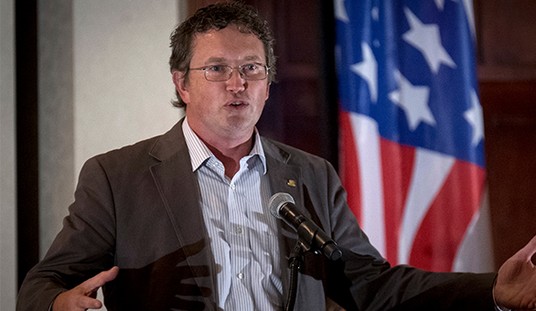Although it has faded from the headlines, the March 2023 San Bernardino Mountains blizzard and its aftermath are still severely affecting those who live in the mountains. On March 25, I posted here the first part of an interview with mountain resident Beth Jahnsen, who detailed the failure of local and state agencies to carry out their duties in serving the people both during and after the blizzard. In this second part, Jahnsen goes further into a probable reason why San Bernardino County Sheriff and Coroner Shannon Dicus refused offered help from neighboring counties to assist in search and rescue operations both during and after the storm.
Some background. When the state of California declares a state of emergency in a county within the state, the county can request financial assistance from the state under the California Disaster Assistance Act. Quoting the state website:
The program also provides for the reimbursement of local government costs associated with certain emergency activities undertaken in response to a state of emergency proclaimed by the Governor. In addition, the program may provide matching fund assistance for cost sharing required under federal public assistance programs in response to a Presidential Major Disaster or Emergency Declaration.
The website goes on to note:
In general, the state share is no more than 75 percent of the following eligible costs:
- Overtime and associated wage additive costs for emergency response personnel;
- Actual travel and per diem;
- Supplies, materials, and equipment;
- Repair, permanent restoration, and replacement costs for public facilities;
- The cost of basic engineering services when necessary for construction projects;
- Indirect and administrative costs (10% of total approved state share);
- Costs for work performed under interagency assistance agreements for which an eligible applicant is legally obligated to pay; and
- The local cost share required under federal public assistance programs.
Drilling down further, the following provision is found:
(e) Interagency Assistance Agreements:
Costs for work performed under interagency assistance agreements, including but not limited to contracts or cooperative agreements or assistance-for-hire agreements between local governments or between local governments and state agencies, are eligible for reimbursement, but are limited to those costs of the responding entity for which an eligible applicant is legally obligated to pay. Eligible costs shall include only those reasonable costs invoiced or billed in accordance with reimbursement provisions contained in such interagency assistance agreements.
In short, reimbursement is strictly for dollars spent and not to line any given local government’s pockets. With this in mind, we return to the interview.
The various media reports about the county’s response show a slight sense of, “Yeah, insufficient preparation. Yeah, we’ve never had a situation like this.” Yet even with that, it seems that despite their knowledge, and when they had it, of what was coming, they sat back and said, “We’ll let it play out.” Is that the impression you got? Do they not do anything? Did they not care, or were they so unprepared that they couldn’t do anything?
Both. They were totally unprepared and caught with their pants down.
We on the mountain feel like bastard children. We’re more conservative than everybody else around us. That’s why we’re all up here. Not everybody up here is a conservative, but the community tends to have more independently-minded people. You have to be. So, we are not the people that love the supervisors and agree with the sheriff. Therefore, they don’t care about us. We’ve felt that for a long time.
Here’s an example. Every year during the winter, they open a road because people want to come up here and play in the snow, yet they don’t police that. They don’t arrest people who simply stop on the highway. They don’t even ticket them. They don’t do anything. So, pretty much every year, a kid gets killed because people do stop on the highway, a kid runs between the cars to play in the snow, and they get hit. We have two sheriffs up here on patrol most of the time. That’s who we are to them. So there’s that aspect where they don’t seem to care.
And there’s the unpreparedness part. They have given us a distinct, “You should be prepared for this; you live in the mountains.” Then when someone asks them about their response, they turn around and say, “Well, this is unprecedented. There is no possible way we could have been completely prepared. And we did what we did — we did pretty good.” And they pat themselves on the back. It’s remarkable that these people aren’t hiding under a rock, considering how bad of a job they did.
A massive part of this story is money. It comes down to the almighty dollar and pride. We could not figure out why they weren’t giving us the resources and why they were actively turning them away. Our sheriff was turning away help. He was declining assistance from other counties — equipment plus people for search and rescue — and we could not figure out for the life of us why he was.
Operation Mountain Strong has been working with a couple of groups that have done this kind of thing before. Cajun Navy is one. They have informed us to keep track of all the hours we have volunteered. Most of the people up here are independent contractors or have their own businesses. None of them have been working for the past month; they’ve been trying to help their neighbors, survive themselves, and get the snow off their roofs. So, none of them have been making any money.
When we heard that we should keep tabs on the hours we’ve volunteered, we thought we could get money from FEMA for this. They replied no — we can get money for the county.
“Excuse us — what?”
“Keep track of your hours. All of these people that volunteered can fill out paperwork, turn it in, and the federal government will give money to the county for all the hours that we worked.” So all my volunteer hours go to the county for those two weeks.
When you hear that your county sheriff was telling L.A. County and Orange County, “Please, we don’t need your 200 search and rescue officers” — who are ice and snow trained, by the way — “we don’t need them here. We’ve got this covered.”… come again? You’re trying to figure out what he was talking about because no one saw the sheriffs up here. I don’t know where they were, but it wasn’t here. At best, they were maybe flying a helicopter or two. And he was saying, “We’ve got this covered.”
Then, I heard they’d used all their overtime and didn’t have any money. So let’s do the math. If he had brought in people from other counties, there would not have been as many volunteers needed, so there would not have been as much money for him at the end of this. That’s the way I read it. They’re going to get a crapload of money for this almost always bankrupt county that has been so ill-run for decades it has been on the edge of bankruptcy for 20 years. And you think they will put all that money into the mountain? No, they’re not. They’re going to put a lot of it down there; they’re going to replenish their stocks because they used their overtime and all of that. I still can’t believe that’s true, but I’ve asked the people from Cajun Navy three times, and they’ve said, “No, that’s how that works.” So when you look at everybody on the mountain, and half of the people that volunteered to do whatever — for example, plow; people up here own little Bobcats and different things — if all of those people put in their hours at $25 or $26 an hour, which is what they say it’s worth, that’s millions of dollars for the county. A few dead people? Eh.














Join the conversation as a VIP Member